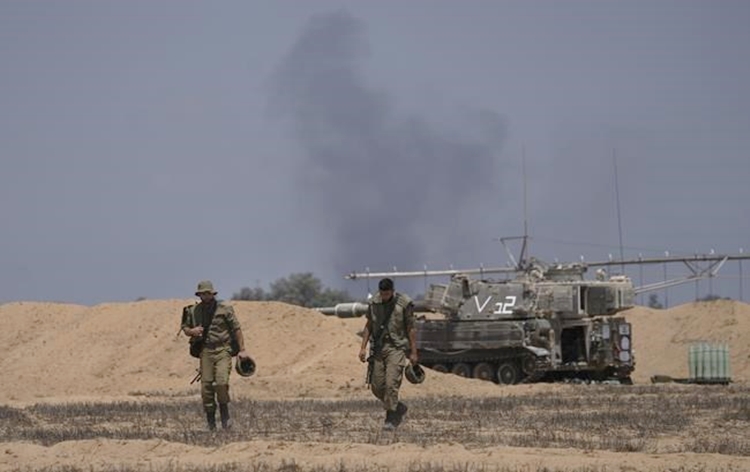U.S. President Joe Biden and Jordan’s King Abdullah continued to exert pressure for a Gaza Strip ceasefire as senior mediators prepared to resume work on an Israel-Hamas truce agreement, with the specter of an Israeli ground offensive looming over Rafah.
Senior officials from the U.S., Egypt, Israel, and Qatar were set to convene in Cairo to advance a three-phase framework aimed at securing the release of hostages and achieving an extended pause, sources familiar with the matter disclosed.
Addressing reporters at the White House on Monday following discussions with Abdullah, Biden outlined ongoing efforts, stating, “The United States is working on a hostage deal between Israel and Hamas, which would bring an immediate and sustained period of calm into Gaza for at least six weeks.” He said that a six-week hiatus in hostilities could lay the groundwork “to build something more enduring.”
Abdullah echoed the urgency of the situation for Palestinians, particularly the over one million civilians seeking refuge in the southern Gaza city of Rafah. “We cannot stand by and let this continue,” he asserted. “We need a lasting ceasefire now. This war must end.”
On Monday, Israel launched a rescue mission that successfully freed two Israeli-Argentine hostages held by Palestinian militants in Rafah, near the Egyptian border. The operation, which targeted hostages taken during the Oct. 7 raid by Hamas, prompted Israeli Prime Minister Benjamin Netanyahu to reaffirm the necessity of sustained military pressure on Gaza.
However, Biden’s frustration with Netanyahu’s handling of the conflict has been apparent, with the U.S. President urging greater efforts to minimize casualties and protect civilians in Gaza.
Despite ongoing diplomatic maneuvers, casualties in Gaza have mounted, with Gaza health officials reporting significant loss of life and injuries among Palestinians.
The United Nations reiterated its call for a ceasefire and opposed plans to relocate civilians in Rafah, emphasizing the dangers posed by unexploded ordnance and lack of shelter.
Meanwhile, European Union foreign policy chief Josep Borrell suggested halting arms supplies to Israel as a means to reduce civilian casualties, although the U.S. downplayed the potential impact of such a move.
Netanyahu rejected Hamas’ latest ceasefire proposal, further complicating efforts to broker a peace agreement. Hamas, however, expressed willingness to negotiate, accusing Israel of stalling progress.
The ceasefire talks remain ongoing, with Hamas calling for an end to aggression and the release of captives, while Israel faces mounting pressure to prioritize civilian safety in any military action.
(Inputs from Reuters)














